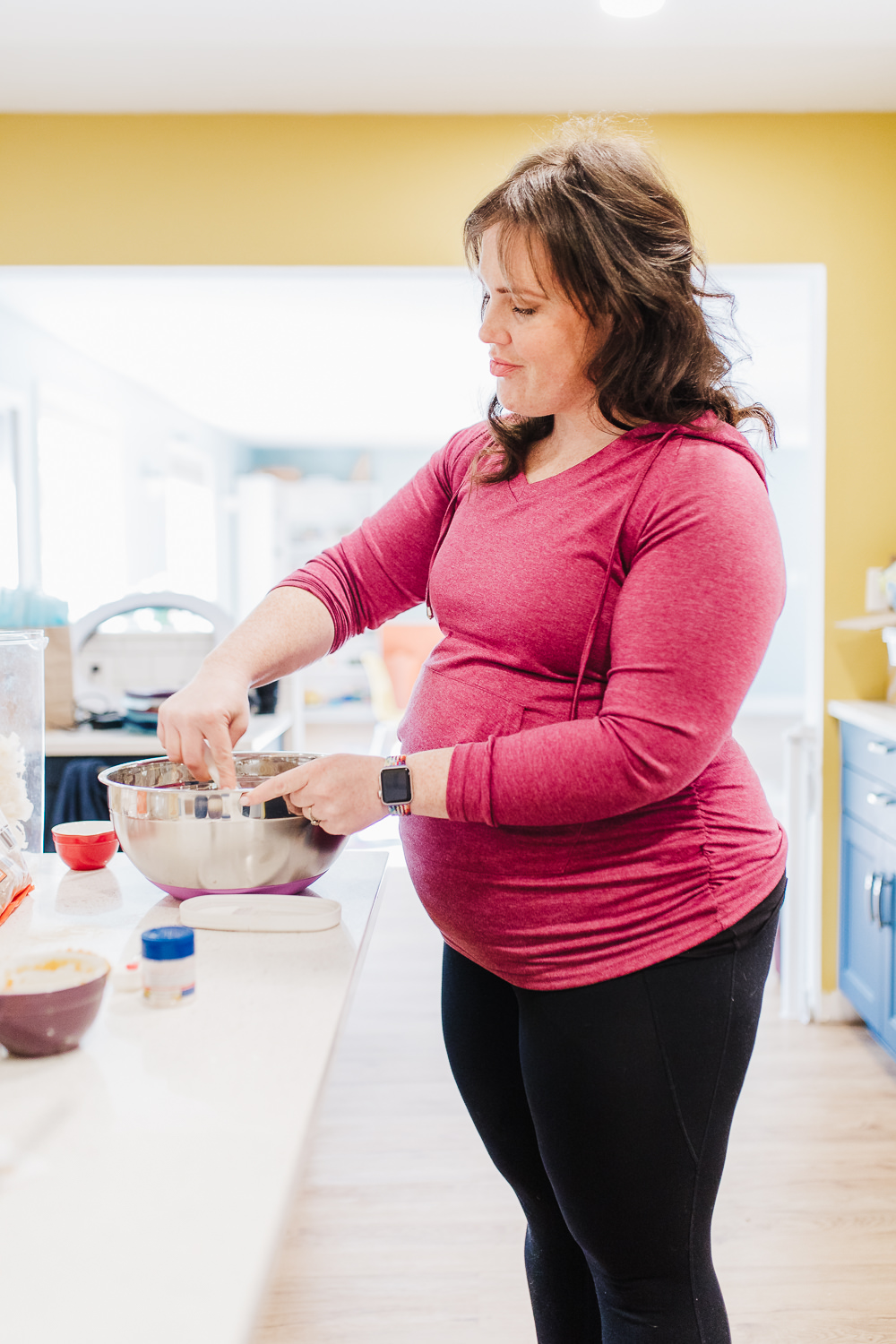Programs
Blog
About
PRegnant
LifeStyle
Postpartum
EXPECTING A BABY IN THE NEXT FEW MONTHS?
DOWNLOAD MY FREE POSTPARTUM ESSENTIALS CHECKLIST
Hi, I'm Liz!
I'm a chocolate-loving nutritionist,
pre & postnatal coach, doula and let's face it- total birth nerd 🤓.
I'm here to help you cut through mommy-marketing and pinterest perfection to confidently cultivate a pregnancy and postpartum experience you totally love.
Let's Connect
RECIPES
BREAKfast
beverages
main dish
dips & Dressings
salads & Sides
snacks
soups
treats
instant pot
one dish meals
quick meals
Pregnancy
Birth Planning
FIrst Trimester
Second Trimester
THird Trimester
Postpartum
Postpartum Planning
FOurth Trimester
REcovery
wellbeing
Fitness
Pregnancy Loss
Understanding Loss
Recovery After Loss
Friends & Family SUpport
PArent Life
Pregnant?
Check out the
5 core exercises you need to know!
Take the stress off your plate! Download
Meals Made Simple!
i need this!
Yes Please!
shop SAfer at beautycounter
Get the BEst Non-toxic Deodorant!
FItness
Nutrition
Nutrition
Grief & wellbeing
Pregnancy After Loss
Understanding Loss
Recovery After Loss
Friends & Family SUpport
Grief & wellbeing
Pregnancy After Loss
Understanding Loss
Recovery After Loss
infant & Toddler Feeding
Grief & wellbeing
Pregnancy After Loss
Newborn Care
Family Dynamics
PArent Relationships
lactation
Pregnancy After Loss
What to Expect in Early Postpartum
Do you know what to expect in early postpartum? If you haven’t given birth before, you may be feeling totally overwhelmed by all the unknowns that come along with becoming a parent. But don’t worry, we’ve got you covered! Today, we’re diving into the fourth trimester and highlighting some big things you can expect during the early postpartum time.
Now, you might be wondering, what on earth is the fourth trimester? Well, my friend, it’s the first 12 weeks after giving birth. Yep, that’s right. It’s considered its own trimester because it’s an intensive time of healing, coregulation, and bonding. You and baby are still inextricably linked. (Baby doesn’t understand themselves to be a separate person until 6 months!)
Brief overview of early postpartum
First Few Days Postpartum
Those first few days postpartum can feel like a whirlwind. You may be in a daze, trying to take it all in. It’s totally normal to feel a bit shocked and overwhelmed. After all, your body has just gone through some major shifts, and you’re getting to know your new little human. Take your time to process your birth experience and embrace the beautiful moments.
First Few Weeks Postpartum
Once the initial shock wears off, you’ll be trying to find a routine. However, be prepared for things to shift and change quickly. What worked last week may not work this week, and that’s completely normal. Your life will revolve around your baby’s eating and sleeping needs, so expect a baby-led routine. Embrace flexibility!
Firsts month postpartum
As you settle into your new normal, certain things will start to improve. Your sleep will increase incrementally, but you’ll still be tired (let’s be honest, that’s par for the course in parenthood!). Around six weeks, many parents hit a low point as the newness wears off and exhaustion sets in. But don’t worry, my friend, this season is temporary. You’ll start to feel more like yourself again soon.
Amidst the exhaustion, you’ll also have plenty of wonderful moments, like baby snuggles and giggles, that make it all worth it. It’s important to acknowledge the hard parts, too, so we’re here to be real with you.
During the fourth trimester, there’s a lot happening physically and emotionally. Let’s break down some of the big things:
What to expect Physically in early Postpartum
Lochia AKA Postpartum Bleeding
Get ready for what feels like a really heavy period. The first few days postpartum, you’ll experience heavy bleeding with lots of clots. But don’t worry, it gradually tapers off over the next several weeks, usually ending with some light spotting by six weeks postpartum. Take it easy and let your body heal by not doing too much too soon.
Cramping
As soon as you give birth to the placenta, your uterus starts contracting back to its pre-pregnancy size. This means you might experience some intense period-like cramps. You’ll also notice that your uterus slowly contracts down, so you may still look about six months pregnant. These cramps can intensify while nursing or snuggling your baby, as oxytocin triggers the contracting motion. It’s all a part of the postpartum journey, so embrace those uterus gains!
Sore Body
Birth is hard work, my friend. Regardless of how your baby enters the world, your body has gone through a tremendous physical event. If you have a vaginal birth, your perineum may be particularly sore. And if you have a cesarean, your stitches will need time to heal. Remember to give yourself plenty of rest and avoid putting pressure on your pelvic floor. Laying down is the ideal position to support your healing process.
Making Milk and Feeding Baby
Before your milk comes in, you’ll produce colostrum, a sticky yellow fluid often referred to as liquid gold. Your milk usually comes in between days 2-5 postpartum. To support your milk supply, feed your baby frequently. In the early days, it’s normal for your baby to not give you clear hunger cues. They’re tired and eating takes effort! Aim to feed every two to three hours for at least 10 minutes on each side.
Feeding may not come naturally at first, and that’s okay. It’s a learning process for both you and your baby, but it does get easier with time and practice. Think of the first two weeks as placing your order for a great milk supply. The more you can feed your baby, whether through nursing or pumping, the more you’ll signal to your body to produce milk.
Incontinence
Get ready for a hot minute of little to no bladder control in the first few days postpartum. It takes some time for your brain and nerve endings that control your bladder to start working together again. So, you may find yourself standing up and unexpectedly starting to pee (yep, speaking from experience here!). But fear not, my friend, your bladder control will return eventually. If you continue to experience stress-induced incontinence, such as peeing when you sneeze or lift something heavy, it’s completely normal during the fourth trimester. However, if it doesn’t improve over time, make sure to see a pelvic floor physical therapist. Because let’s be real, you don’t want to pee your pants for the rest of your life!
What to expect emotionally in early postpartum
The Leaky Day
Around day 3 or 4 postpartum, many parents experience what’s known as the Leaky Day. By this point, your milk has come in, you’re bleeding, and your estrogen levels have plummeted from pregnancy levels. This hormonal rollercoaster can make you feel incredibly emotional, causing you to leak from various parts of your body (yes, even your eyes!). You might find yourself crying for no apparent reason, feeling frustrated with your partner, or thinking that everything is going wrong. Just remember, it’s all part of the matrescence journey, and you’re doing great!
Touched Out
With all the demands of caring for a newborn, healing postpartum, and going through extreme hormonal shifts, many parents feel touched out. The thought of sex or even cuddling may be the last thing on your mind, and that’s completely normal. We’ll dive into ways to support intimacy and relationships outside of sex in a future post. But for now, just know that you’re not alone in feeling this way, and it’s okay to prioritize self-care and personal boundaries.
Baby Blues
About 80% of postpartum people can expect to experience the baby blues in early postpartum. It usually starts around 3-5 days after birth (often coinciding with the Leaky Day) and tends to resolve by two weeks postpartum. During this time, you may feel moody, weepy, cranky, sad, overwhelmed, and like you’re not doing a good job. But rest assured these feelings will level out or dissipate over time. If they persist or get worse, don’t hesitate to reach out to your healthcare provider for support.
Plan for a Better Postpartum
Remember, the fourth trimester is a season of immense change, adjustment, and growth for both you and your baby. So, focus on getting back to basics: eating, sleeping, healing, and co-regulating. Simplify your expectations, take it one day at a time, and know that you’re not alone on this journey.
Plan for a Better Postpartum in just 15 minutes a day with my 10 day postpartum planning guide.
It’s delivered straight to your inbox with bonus templates, recipes and DIY tips to make planning for postpartum as simple and stress-free as possible.
Related
October 6, 2023
Liz Winters
The post may contain affiliate links and the site may earn a commission on some products.
Every item on this page is chosen and recommended by the LWW team.
Read more about our Affiliate Disclosure here.
Holiday hits
Don’t miss these!
Want to add a little ease to your routine as a parent?
Get all my favorite tips, tricks and recipes delivered straight to your inbox.
start here
blog
work with liz
programs
non-toxic living
podcast
contact
© 2021 LIZ WINTERS WELLNESS // WEBSITE BY PINEGATE ROAD
Terms & Conditions
start here
blog
work with liz
PROGRAMS
non-toxic living
podcast
contact
© 2021 LIZ WINTERS WELLNESS // WEBSITE BY PINEGATE ROAD
Terms & Conditions
BADASS Birther's Club
Postpartum Recovery After Pregnancy Loss
How to Support Loved Ones After Loss
start here
blog
work with liz
PROGRAMS
non-toxic living
podcast
contact
© 2021 LIZ WINTERS WELLNESS // WEBSITE BY PINEGATE ROAD
Terms & Conditions
Pregnant
Postpartum




